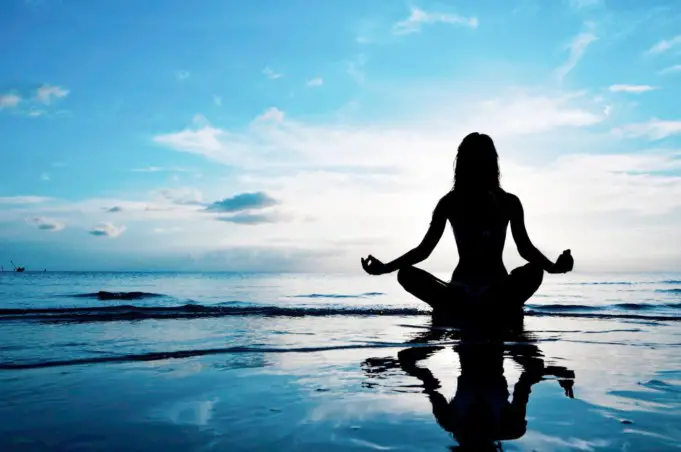Stress is detrimental to the health and well-being of an individual. However, many people cannot avoid stress, and a large percentage of the world’s population gets stressed daily. This is why it is important to learn how to manage stress.
Mindfulness-based stress reduction is a therapeutic program that runs for eight weeks. This program helps in training individuals to participate in mindfulness meditation with yoga. Participants come together once a week to be coached and to practice mindful meditation and yoga.
MBSR is a Buddhist practice that aims to reduce how the body gets aroused in a situation. It also controls the emotional reaction of the person in general. These help the person to obtain a more profound sense of being calm.
MBSR also aims to address the unconscious mind. The unconscious mind bears thoughts, behaviours, attitudes, and feelings, which are believed to increase stress and threatens your health.
Professor Jon Kabat-Zinn developed Mindfulness-based stress reduction program in the 1970s, and in 1979, he founded the MBSR clinic at the University of Massachusetts Medical Centre.
He detailed MBSR in his book titled Full Catastrophe Living, which was his bestselling in 1990. He taught MBSR as a course, and it was featured in Moyer’s Healing from Within in 1993, and to this day, it is still being taught and practised.
This program is designed to help people deal with stress and depression, anxiety, Chronic pain, and other stress-related conditions.
Benefits of Mindfulness-Based Stress Reduction
Being involved in this program has a lot of benefits. These benefits include helping the individuals to deal better with certain health conditions such as;
- ADHD
- Anxiety
- Depression
- Chronic pain
- Stress
- Fatigue
- Anger
- Headaches
- High blood pressure
- Sleep problems
Benefits of practising MBSR may include the following:
Pain relief
Practising MBSR may help in the relieving of pain as well as the improvement of the psychological well-being of people who experience chronic pain conditions.
Several studies by experts showed that people with arthritis who take part in MBSR had shown much more significant improvement in their quality of health and life, unlike the group of people with arthritis that did not participate in MBSR.
Practising MBSR helps people to deal with headaches and migraines much better and safer than those who don’t.
Stress Management
In a published report, experts were able to show that this program helps in the reduction of the level of stress in healthy people. According to this report, it appears that MBSR helps in the decrease in anxiety and increases empathy.
Healthy Sleeping Patterns
A research carried out and published in 2007 suggested that participating in MBSR may reduce some factors that contribute to unhealthy sleeping patterns. This factor may include worrying, fear, and others.
Although, evidence to prove that MBSR can help improve the quality and quantity of sleep was found insufficient. However, the suggestion that this could be true is believed by some people.
Depression Relapse Prevention
Researchers believe that the application of MBSR approaches may help in preventing symptoms of depression from reoccurring. This is because practising MBSR helps in altering unhealthy though and feelings patterns into positive ones.
It helps prevent people from entertaining negative thoughts, beliefs, and attitudes, especially the ones that can affect their self-esteem. According to a study, MBSR helps in the prevention of depression relapse, just as antidepressant medications work.
Bias Reduction
Adopting mindfulness-based techniques often help people overcome certain biased beliefs that might be contributing to a lot of emotional imbalance and troubles.
These approaches have been proven to have a significant favourable influence in reducing racial, gender, and age biases.
Cognitive Improvement
Studies suggest that mindfulness-based techniques include some cognitive benefits. Researchers concluded from a survey that four sessions of MBSR coaching improve memory, mood, and articulation.
The improvement of executive functioning of sight and space was noted as well.
The Program
Mindfulness-Based Stress Reduction program is an eight-week course consisting of group sessions where better mental health instructions are issued.
This program consists of weekly meetings of two and a half hour classes and a one-day retreat of seven-hour mindfulness practice. Depending on the coach and facility, the protocols may differ a little bit.
The instructions issued by professionals come in three formal approaches which are:
- Mindfulness meditation
- Body scanning
- Simple yoga positions
When going for MBSR, you should expect a group discussion. During the first 4-weeks of the program, body scanning is practised. Body scanning is a laid down practice where you lie or sit and attain a particular position, focusing your attention on various parts of your body. It is called “Body Scanning” because you systematically concentrate on your body from your toes to the neck.
Based on Professor Kabat-Zinn’s theories, MBSR is a non-judgmental, accepting, letting go, patient-centred course. This program is taught to be incorporated into the participant’s lifestyle. The participants make it a daily routine.
Over time, this practice will improve the participant’s sensitivity to their environment as well as their reaction to situations. The participants become better at coping with life and self-management. It will inspire them to make better decisions and quit the maladaptive cycle of coping. It will help you break the regret of the past and worry about the future.
Practising Mindfulness-Based Stress Reduction
Actively participating in MBSR programs and classes will help better your mental health. These programs and classes are being taught by trained personnel in various facilities, including retreat centres, yoga facilities, clinics, and hospitals.
This course is focused on educating you on the following:
- Mindfulness meditation
- To be aware of specific reactions that are habitual and help you try to relate with yourself in an altered way to hinder this cycle from happening—thereby creating more choices to live on with.
This helps more in dealing with anger issues by assisting you in choosing to take a few breaths and relax when confronted with an annoying situation rather than reacting unacceptably - To have a non-judgemental view of day-to-day living
- To accept change and loss as a natural phenomenon that we have little or no power over
- To become properly aware of our bodies and minds to alleviate stress and pain
- To enjoy access to our inner self for better stress management and healing
- To have a more joyful life
- To gain more serenity and clarity in every moment
- To gain control of self, so that we can react less emotional when faced with a situation
It is good that we take the time to fully understand ourselves, both mentally and physically. One of the best ways to be in charge is practising mindfulness-based stress reduction.












